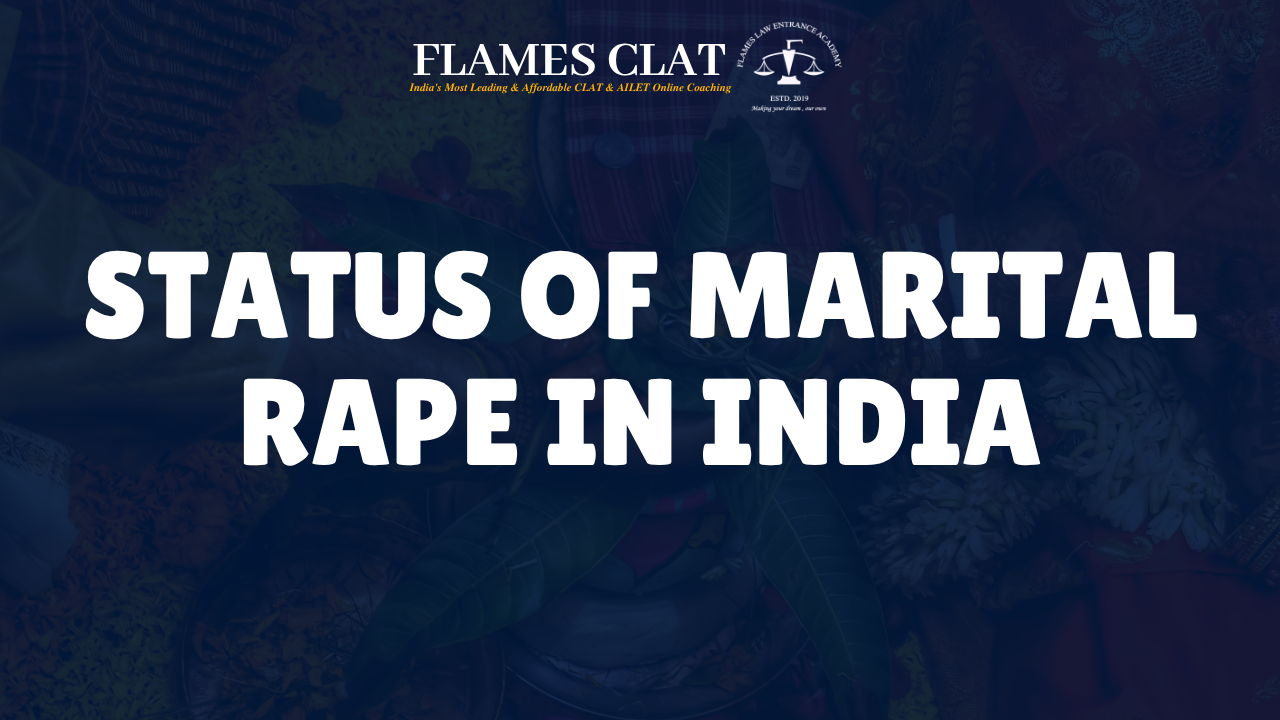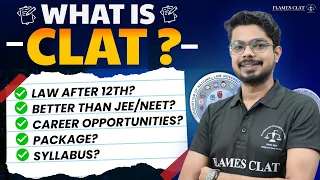Status of Marital Rape in India
Marital Rape has indeed become an important topic of discussion among the legal fraternity across the globe. Marital Rape, as defined by UNESCWA, is “non-consensual vaginal, anal or oral penetration of the body of another person where the penetration is of a sexual nature, with any bodily part or with an object, as well as to any other non-consensual acts of a sexual nature, by a spouse or ex-spouse or by a former or current partner with whom a victim of rape is or has been living in a partnership recognised by the national law.”
The Second Exception to Section 63 as mentioned under BNS, is “sexual intercourse or sexual acts by a man with his own wife, the wife not being under eighteen years of age, is not rape.”
Debates on such topics are conducted in the classes and workshops among the students of Flames CLAT to instil among the students their analytical and critical skills. This blog will examine the status of constitutionality of this Exception to Section 375 of the Indian Penal Code that has now become Section 63 of Bhartiya Nyaya Sanhita (BNS).
Status
India is among those 36 countries who have still not criminalized the Marital Rapes. According to the UN Population Fund, more than two-thirds of married women in India, aged 15 to 49, have been beaten, or forced to provide sex. In 2011, the International Men and Gender Equality Survey revealed that one in five has forced their wives or partners to have sex.
After the Nirbhaya rape case in 2012, the Justice Verma Committee had suggested criminalizing marital rape and said that marriage didn't mean an irrevocable consent to sexual activities. But the Government of India neglected the suggestion.
In recent times, the debate around the criminalization of Martial Rape in India, has resurged because of a judgement by the Hon’ble Delhi High Court giving a split decision over the exception of Marital Rape in RIT Foundation v. Union of India, and another judgment of Karnataka High Court in Hrishikesh Sahoo v. State of Karnataka, in which his plea to drop charges of Marital Rape by his wife was rejected.
Their appeals were then clubbed and then listed before CJI D. Y. Chandrachud, Justices J.B. Pardiwala and Manoj Misra. To this, the Union Government filed an affidavit, in which for the first time considered to reject the marital rape exception but on the same hand, called it ‘penalty over males would be harsh and disproportionate for the institution of marriage’. They argued that though there is a violation of fundamental rights of the women in such cases, rather than going for criminalization, they can go for protection under Domestic Violence law and IPC.
The Government also argues that a women’s consent is protected in marriage, but there is “a continuing expectation, by either of the spouse, to have reasonable sexual access from the other….; though these expectations do not entitle the husband to coerce or force his wife into sex….; the consequence of such violations within marriage differ from those outside of it”.
Mariam Dhawale, General Secretary of the All India Democratic Women’s Association, said than Consent inside and outside of marriage are “not two different things”. “Consent is consent,” she added.
She argued that legal reform is essential to changing societal mindsets as law is made for the society; and to bring a change in the society, change in law is important. She adds that changing the law would be the “first step” to change in the belief of society.
To Government’s claim of harming institution of marriage, Dhawale comments, “the sanctity of marriage, or the harmony within the home is actually getting disturbed by the man who is committing the violence, not by the woman who is asking for justice.”
Advocates against criminalization claimed that marital rape law would lead to women falsely accusing their husbands of rape. Senior Advocate Jayna Kothari mentions that, it’s hard for women to report sexual offences, even when the laws support them.
Conclusion
The discussion around marital rape in India reflects a clash between traditional notions of marriage and modern understandings of bodily autonomy and individual rights. As Susan B. Anthony once said:
“It was We, the people; not we, the white male citizens; nor yet we, the male citizens; but we, the whole people; who formed the Union…. Men, their rights are nothing more; women, their rights are nothing less.”
The question remains: how long will Indian law wait to recognize that consent is not conditional on marital status?
Legal educators at Flames CLAT Academy continue to emphasize such debates as essential for aspirants preparing for CLAT and judiciary exams, where understanding constitutional morality and legal reform are not just academic goals but tools for real-world impact.
Join our Flames CLAT Family at https://t.me/flamesclat
For Informative videos, do check out https://youtube.com/@flamesclat?si=-PqiaRLEjutM-iYj




Write a Review
Your email address will not be published. Required fields are marked *